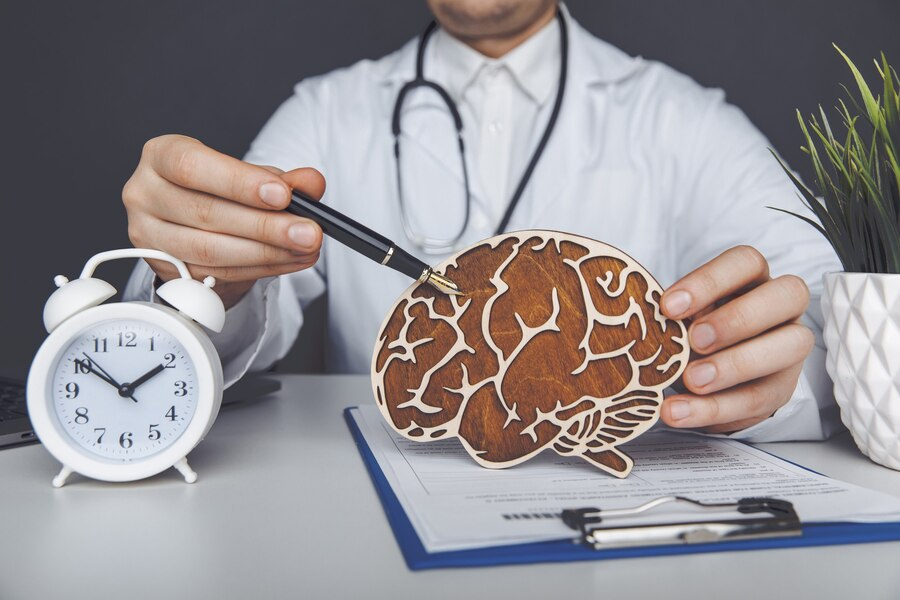
We live in a fast-paced world where time is precious and productivity reigns supreme. This is one of the reasons why multitasking has become so prevalent. Multitasking is the ability to perform several tasks simultaneously. You could be watching television for entertainment, but at the same time, scrolling through your phone for timely work updates. It sure does increase productivity and may, for a short time, seem efficient, but in the longer run, could impact brain and cognitive health.
Table of Content:-
In an interaction with the OnlyMyHealth team, Dr Kaustubh Mahajan, Consultant Neurologist, S L Raheja Hospital - A Fortis Associate, sheds light on the negative consequences of multitasking and discusses how it may impact cognitive functions.
Also Read: Boost Your Brain Health With MIND Diet: Experts Share Which Foods To Eat And Avoid
What It Means To Multitask![]()
Multitasking can be of several types. It can be personal, professional, or may include things that may sometimes be overlooked. Some of the examples include:
- Chewing gum while walking
- Reading emails while chatting with coworkers
- Cooking dinner while helping children with their homework
- Taking several customer orders in a restaurant
- Working on a presentation while discussing work-related tasks
- Speaking on the phone while entering data into a computer system
- Listening to music while driving to work
- Scrolling through social media while in a meeting
- Writing a report while researching and fact-checking online
Can Multitasking Affect Cognitive Functions?![]()
The short answer is yes. According to Dr Mahajan, "Multitasking does impact cognitive function in both the short and long term. The tendency to do more tasks in less time comes at a cost, as good memory function heavily relies on attention. Multitasking leads to decreased and divided attention."
Research published in the journal Cerebrum supports this, showing that while multitasking is common, it is often ineffective because our brains are better suited for single-tasking. Although we may perceive ourselves as proficient multitaskers, studies reveal that our actual ability is quite limited.
This is because multitasking is essentially task-switching, which can result in more errors and slower performance. Studies also indicate that frequent media multitaskers may struggle with tasks requiring sustained attention, working memory, and long-term memory.
Dr Mahajan explains that when we multitask, the tasks are stored as loose connections in the brain, whereas tasks completed with proper focus form strong connections, leading to better recall and comprehension. In the short term, multitasking can cause burnout and fatigue, and in the long term, it may contribute to cognitive decline, including conditions like dementia.
Additionally, multitasking invariably needs the hormone cortisol in order to function better, which activates stress and a whole lot of other side effects with it. The body gets confused and prepares you for a stressful situation, like there's a fire when you are merely just multitasking.
Also Read: Expert Talk: Quick Dos and Don'ts To Keep Your Brain Healthy And Fit
Strategies That Can Help Break The Habit![]()
While multitasking may seem efficient and productive, it may impact your focus and performance in both the short and long term. Therefore, Dr Mahajan recommends training yourself to focus on one task and pay attention.
He says, “Practise mindfulness, as it will help you focus and pay attention to tasks in hand.
“Prioritise your work and, without any distractions, undertake the difficult ones, which you have been avoiding and need your understanding. You can't make your presentations while watching an exciting series or movie.
“Tackle the difficult tasks first by starting small. For example, if you've decided to jog for 30 minutes, begin by thinking about just the first two minutes rather than the entire duration. Simply focus on getting up and putting on your shoes,” he concludes.
Also watch this video
How we keep this article up to date:
We work with experts and keep a close eye on the latest in health and wellness. Whenever there is a new research or helpful information, we update our articles with accurate and useful advice.
Current Version


